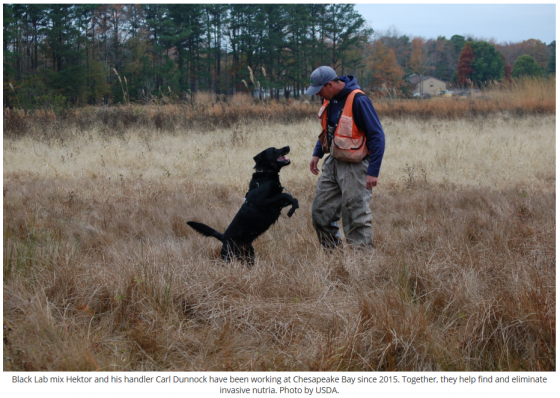This post first appeared on Risk Management Monitor. Read the original article.
 Today, March 23 is National Puppy Day, celebrated by organizations everywhere that benefit from the smarts and loyalty of our canine friends. Dogs assist humans in a number of situations including bomb-sniffing dogs on the battlefield, TSA dogs used in airports to locate contraband and as reported in Risk Management, arson dogs are employed to determine the cause of mysterious fires for both fire and police departments. Seeing eye dogs and service dogs for veterans have important jobs as well.
Today, March 23 is National Puppy Day, celebrated by organizations everywhere that benefit from the smarts and loyalty of our canine friends. Dogs assist humans in a number of situations including bomb-sniffing dogs on the battlefield, TSA dogs used in airports to locate contraband and as reported in Risk Management, arson dogs are employed to determine the cause of mysterious fires for both fire and police departments. Seeing eye dogs and service dogs for veterans have important jobs as well.
It turns out that the Dept. of the Interior also has good reason to celebrate our four-legged companions. Dogs do a number of jobs to help the Dept. of the Interior achieve its goals and accomplish its mission of “keeping Indian country, public lands, visitors and wildlife safe.”
Detector dogs work in airports, seaports, mail centers and other critical transportation points. According to the Department: “When people try to smuggle animals or illegal products (such as snakes, sea turtles or rhino horn), U.S. Fish and Wildlife Service’s Wildlife Detector dogs sniff out this hidden contraband. The agency’s seven detector dogs work in entry ports at Anchorage, Chicago, Honolulu, Houston, Los Angeles, Miami and Puerto Rico, increasing the Service’s inspection capabilities and helping surpass what a human team could do by themselves.”
Dogs also pull sleds in Denali National Park and are trained to stop the spread of invasive species and diseases in many areas. Avian botulism, often deadly to birds has become a treat in the Hanalei National Wildlife Refuge in Hawaii, the Department reports. Because the disease is easily spread, the U.S. Geological Survey and U.S. Fish and Wildlife Service are training dogs to track down dead birds infected by avian botulism. These dead birds are then removed before the disease can infect other birds and waterfowl.
According to the Department of the Interior:
At national wildlife refuges, K-9 units ensure the safety of people and other animals. USFWS K-9s have tracked down Alzheimer patients who have gotten lost, sniffed out a hidden rifle used to illegally shoot animals and worked with local law enforcement to track down an armed robbery suspect hiding in water. With a sense of smell and hearing far superior to a human’s, these dogs have proven to be a vital part of the U.S. Fish and Wildlife Service’s mission.
Dogs are welcome in many national parks, but their owners are asked to follow the BARK rules:
B – Bag your waste
A – Always be on a leash
R – Respect Wildlife
K – Know where you can go

